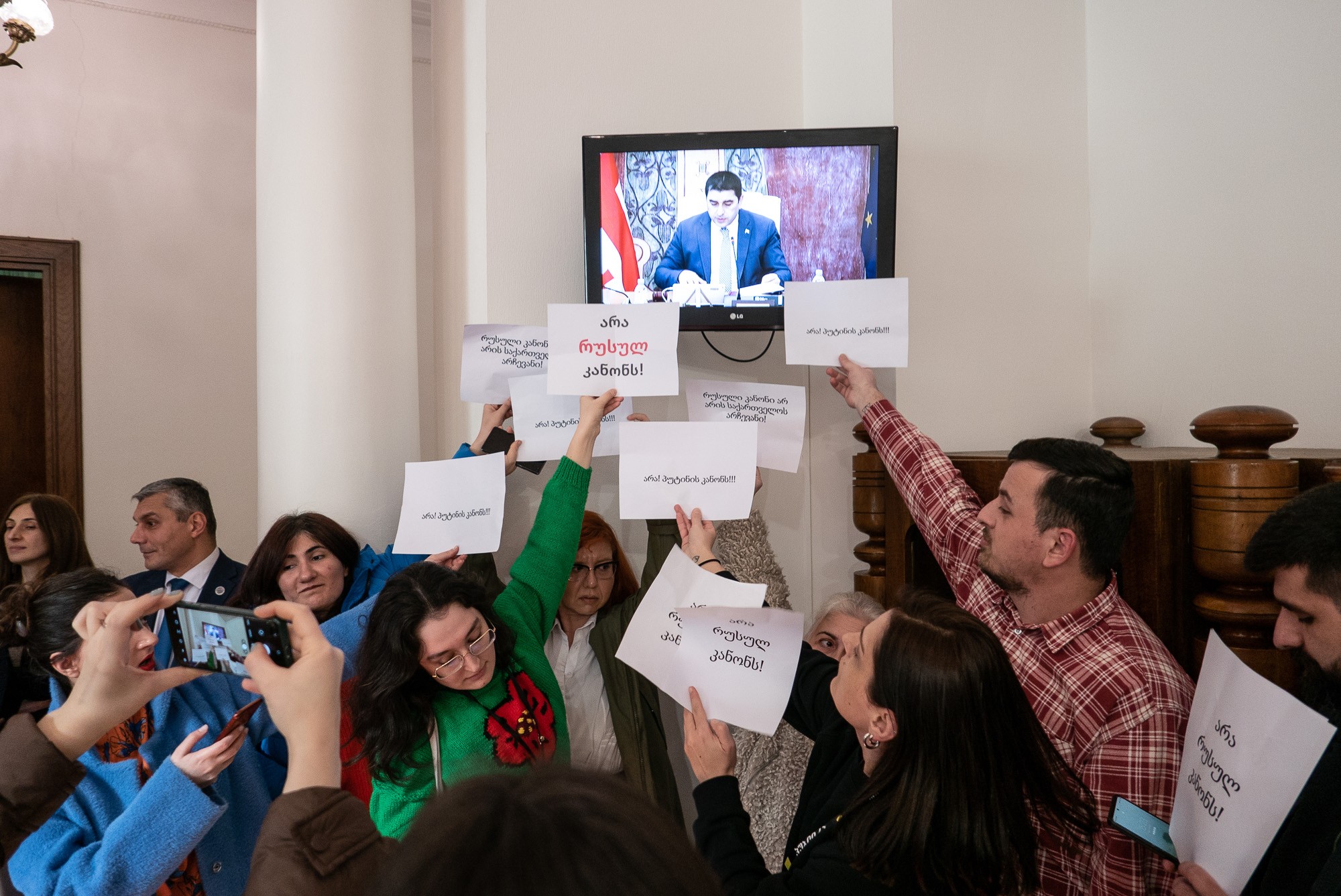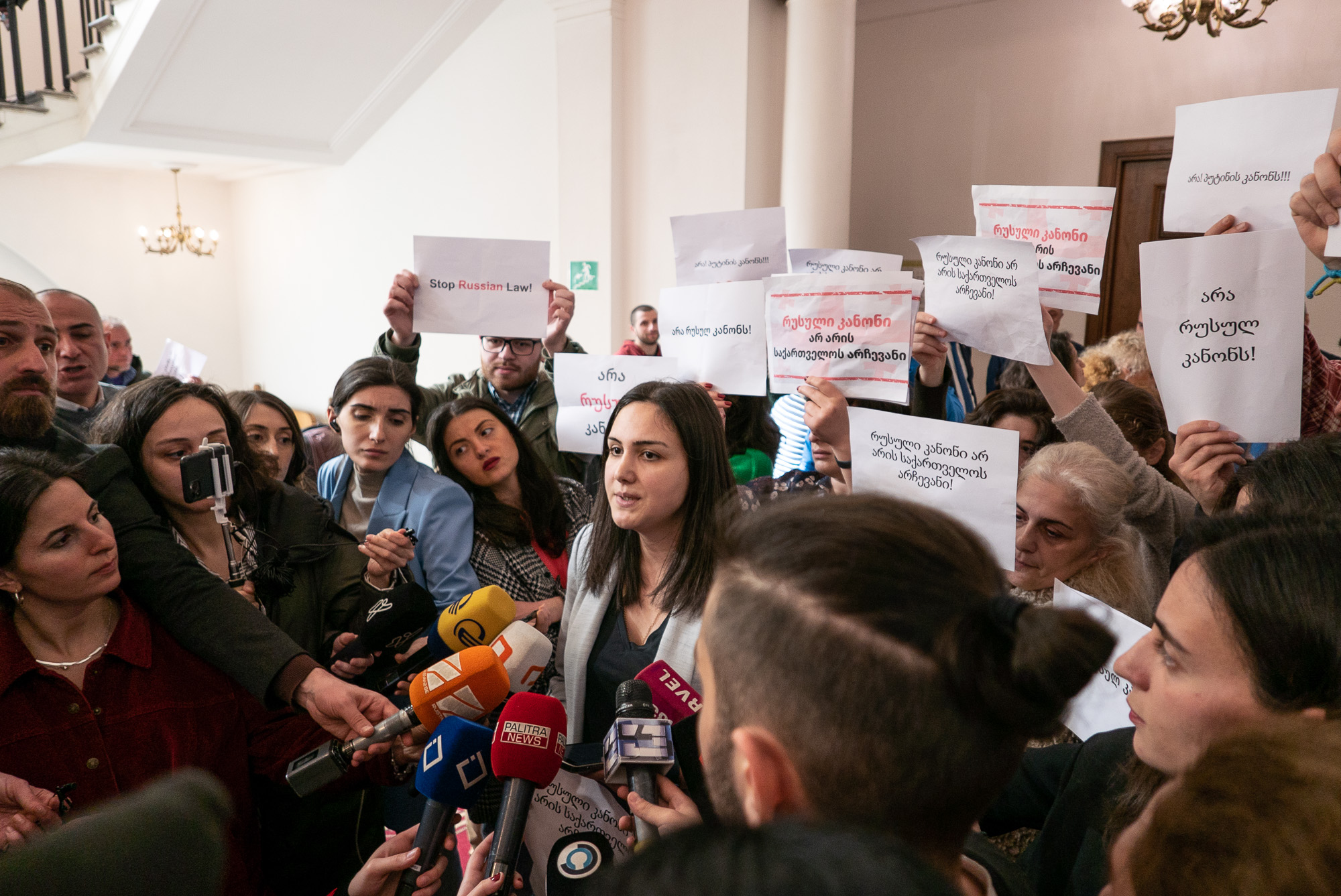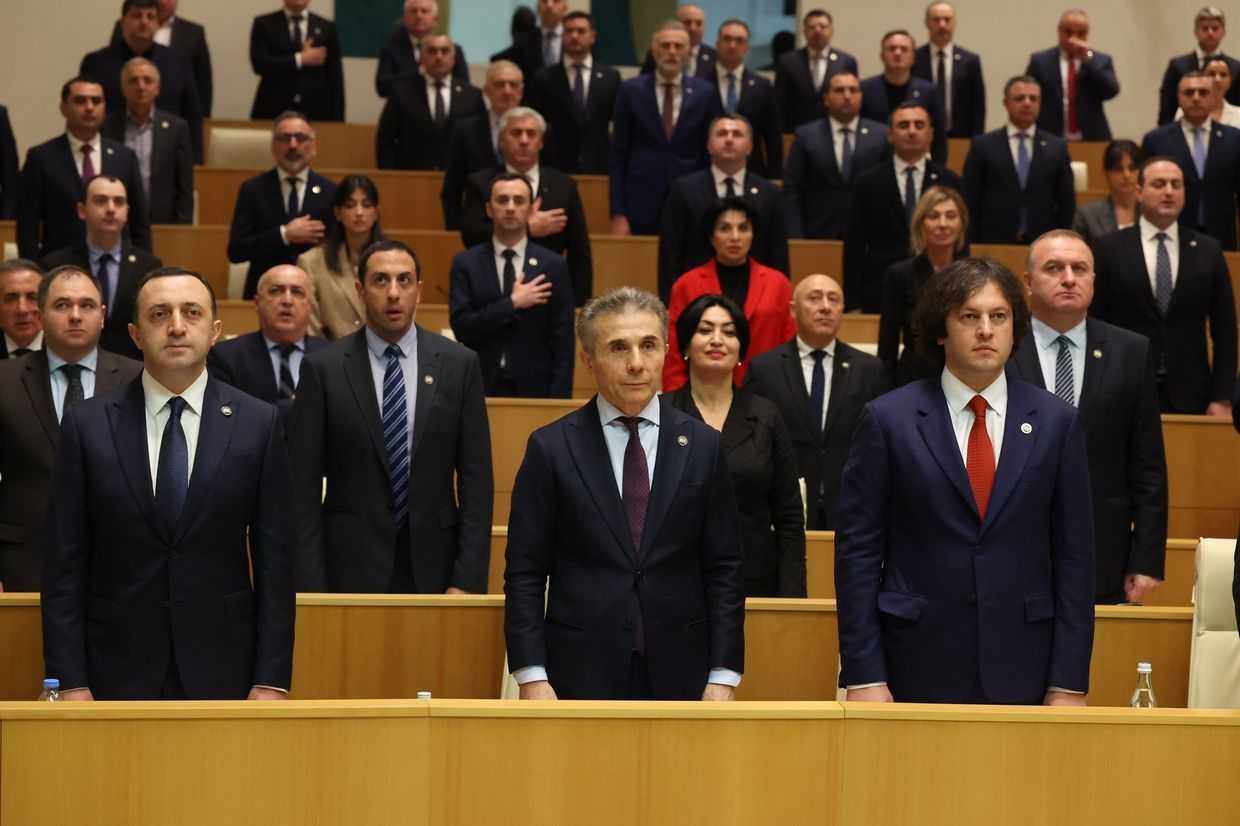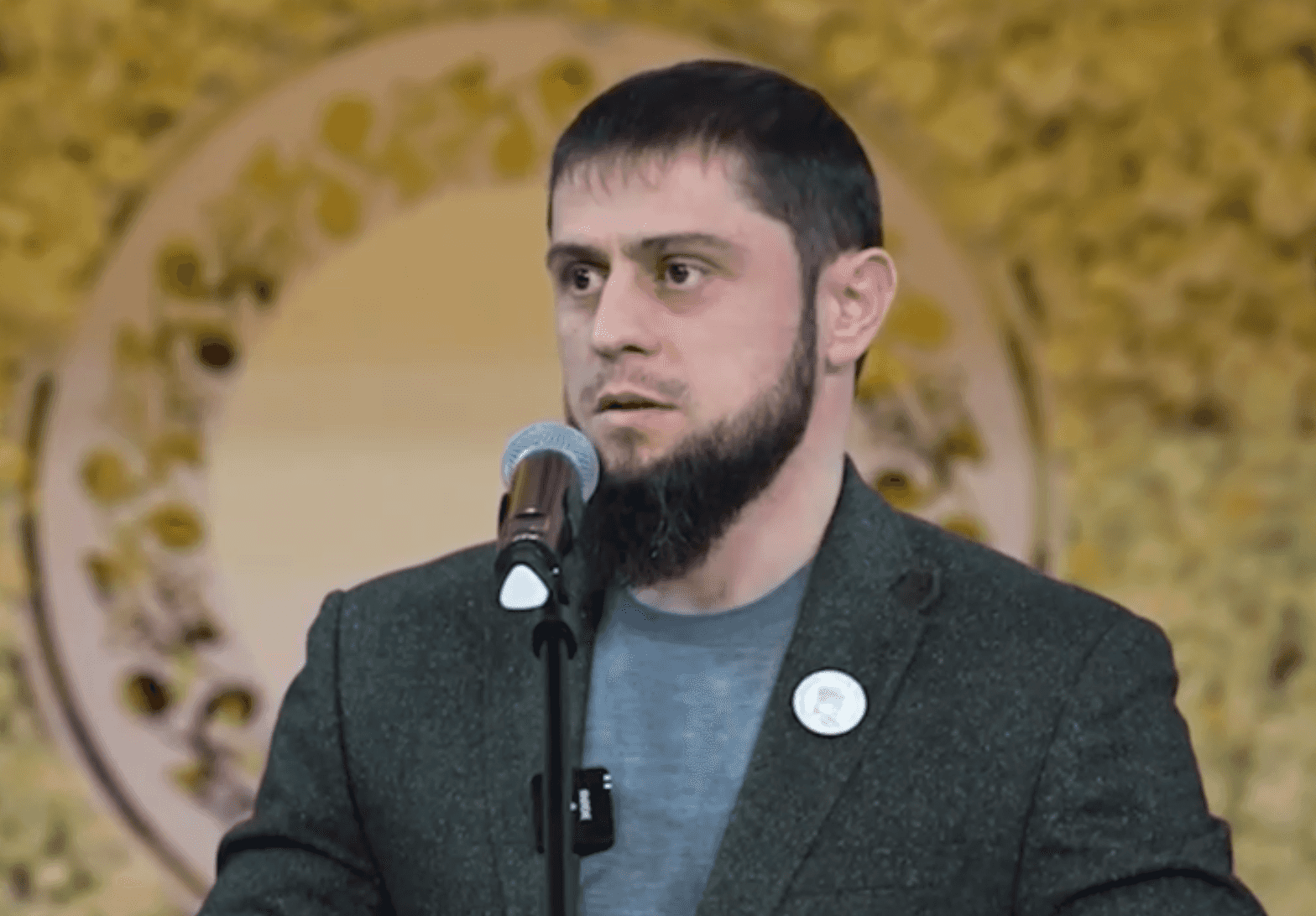
Over 60 media organisations registered and operating in Georgia and the broader region — including OC Media — have vowed not to comply with Georgia’s foreign agent law if it is adopted by Parliament.
The law would mark all non-governmental organisations and media outlets that receive more than 20% of their funding from abroad as ‘agents of foreign influence’.
Organisations which refuse to register would be subject to large fines. An alternative version of the law submitted on Monday could subject the heads of such organisations to up to five years in prison.
[Read from OC Media: Editorial | Only decisive action can save Georgia’s democracy]
‘We serve the public and care about the future of our country. We do not intend to work under this label’, said a joint statement released by 64 media organisations on Monday. ‘If the Russian law is enacted, we will refuse to register as “agents of foreign influence”. It offends our professional dignity’.
The group of media outlets, which included community media, bilingual outlets publishing in minority languages, and those reporting in Georgian, Russian, and English, condemned the legislation supported by the ruling Georgian Dream party as repressive.
‘We believe that the aim of this law is to silence critical voices, [and] to disable the media and public organisations from reporting the corruption, injustice, and poverty existing in our country’.
The groups warned that the effects of a similar law in Russia was ‘testimony’ to this.
‘Civil society and media groups were closed down while journalists became victims of persecution’, the statement said.
OC Media’s director, Mariam Nikuradze, warned that the law posed a ‘terminal threat’ to freedom of the press in Georgia.
‘The danger here is that the current draft could already be interpreted in different ways, and in the future, it will almost certainly be made much stricter as was the case in Russia’, Nikuradze said.
‘The main argument the authors of the law have is about transparency — that society has a right to know how organisations are funded. But the organisations they are targeting, including OC Media, are quite transparent about who we receive funding from.’
On Monday afternoon, a group of journalists read out the statement in parliament as lawmakers gathered to greenlight for discussion the second version of the bill. Like the first, the draft law was authored by People’s Power, a group of anti-Western MPs who are part of the parliamentary majority.

Journalists chanted ‘no to the Russian law’ outside the Parliament Bureau session as the speaker of parliament, Shalva Papuashvili read aloud the second version of the draft law.
“No to the Russian law”, journalists are chanting while the parliament bureau started to disxuss the newer draft of the foreign agent law. pic.twitter.com/DX4BgaKNDt
— Mariam Nikuradze (@mari_nikuradze) February 27, 2023
Some media workers claimed that parliamentary security took away their protest signs upon entering the premises. MP Aleko Elisashvili, leader of the opposition Citizens group, confronted security as he accused the speaker of rescinding the visitor passes he gave to media workers. MP Tamar Kordzaia made a similar allegation.
‘No influence’ on Georgia’s EU membership
The media organisations vowing to disobey the draft law also cited criticism from the EU. On 24 February, the EU underlined that the bill contradicted Georgia’s plans to secure EU membership candidacy status later this year.
The EU pointed to the ‘priorities’ set by them last June related to ‘undertaking stronger efforts to guarantee a free, professional, pluralistic and independent media environment’ and ‘ensuring the involvement of civil society in decision-making processes at all levels’.
Irakli Kobakhidze, chair of the ruling Georgian Dream party, still insisted on Monday that enactment of such a law would ‘bear no influence’ on Georgia’s chances to be granted candidacy status.
People’s Power announced that they would table a second version of the controversial bill, the ‘law on Foreign Agent Registration Act’, last week, after critics branded their original bill a ‘Russian law’.
[Read more on OC Media: Georgian president and journalists speak out against ‘Putin’s law’]
They vowed it would be a ‘copycat’ of the American Foreign Agents Registration Act (FARA).
On 27 February, Georgian Dream and People’s Power, both part of the parliamentary majority, promised to send both versions to the European Commission for Democracy before making a final choice between the two in a third and final reading in late June.
However, Mamuka Mdinaradze, the head of the Georgian Dream parliamentary group, suggested later the same day that they would disregard the Commission’s recommendations if the were to ‘call white black’.
The original draft law was also criticised by the US and the UN.
The draft law has also been widely condemned by the opposition in Georgia, as well as former members of the ruling party.
Mikheil Janelidze, who served as foreign minister from 2015–2018 under Georgian Dream, came out strongly against the bill.
‘Georgian Dream are openly opposing our country’s strategic partners […] and our democratic course’, Janelidze wrote on Facebook on Monday. He also said the party was going against the government’s constitutional duty to do everything in their power to ensure Georgia’s entry into the EU and NATO.







